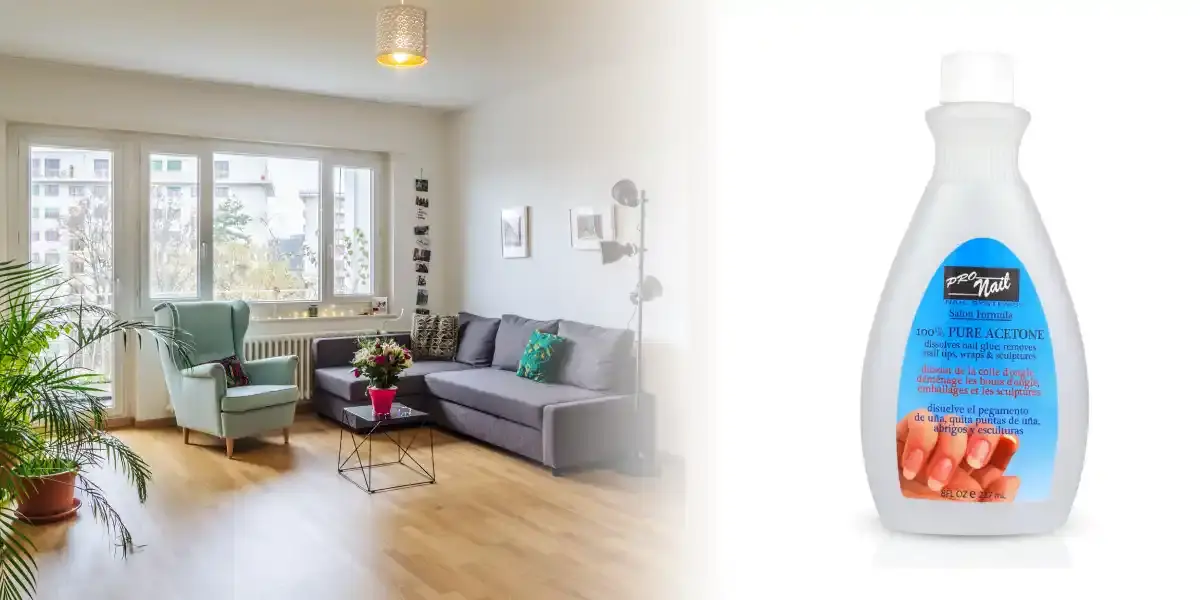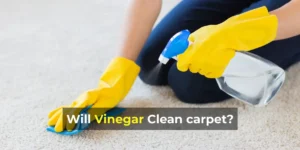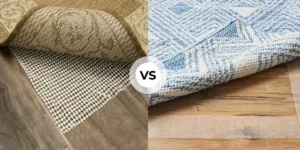Vinyl flooring is a popular choice for homes. Because of its durable material that can last for long periods. Also, it is easy to maintain and can withstand wear and tear.
But, your vinyl flooring will last longer and look better when it’s cared for properly.
Sometimes, homeowners spill things or get stubborn stains, and then, they wonder how to clean them.
Well, one common solution that arises in such situations is acetone. This powerful solvent is commonly found in nail polish removers and paint thinners.
Now, here is a question arises: Will acetone damage vinyl flooring?
Yes, acetone can potentially damage vinyl flooring if it is not used properly. Vinyl flooring is generally resistant to many common household chemicals.
But acetone is a strong solvent that can cause damage if it comes into prolonged contact with the surface. Or if used in high concentrations.
So, it is best to avoid it for vinyl floors.
In this guide, we will discuss everything about this product. So, keep continue reading.
What is Acetone?
Acetone is a colorless, volatile liquid solvent with a distinct sweet odor. People use it for removing nail polish, thinning paint, and getting rid of sticky stuff.
Its ability to dissolve various substances makes it versatile in industrial processes.
Also, it works better and has less odor compared to that paint thinner.
Note: Be careful when you use it. Because it catches fire easily and can be dangerous if you don’t handle it carefully.
Will Acetone Damage Vinyl Flooring?
Acetone is not recommended for most floors, including vinyl. Even though it’s good at getting rid of some stuff. However, its strong cleaning power can mess up the look and strength of your floors.
If you’re thinking of using it on vinyl flooring, it’s a bad idea. This can potentially cause discoloration, darkening, and deterioration of the vinyl floors.
Moreover, acetone is specially designed for removing nail polish. It acts as a powerful solvent, effectively dissolving nail polish without damaging the natural nail.
Precautions to Take While Using Acetone
- Ventilation: You should always use acetone in well-ventilated areas to minimize inhalation risks. Good airflow helps disperse fumes, reducing potential health concerns associated with respiratory exposure.
- Protective Gear: When applying acetone, wearing appropriate protective gear is essential. To ensure safety and security at work, wear chemical-resistant gloves and safety goggles.
- Flammable Environment: Acetone is highly flammable; so, avoid using it near open flames, sparks, or heat sources. It is best to store acetone away from ignition hazards in a cool, well-ventilated area.
- Surface Compatibility: Be cautious when using acetone on surfaces. Some materials, such as plastics, paints, and vinyl flooring, can be damaged by it. Test in a small, inconspicuous area first to ensure compatibility.
- Moderate Usage: Use acetone sparingly. Its potent solvent properties can strip finishes and cause damage over time. Use gentle application methods when cleaning sensitive surfaces.
What Cleaners Are Safe for Vinyl Floors?
Vinyl flooring is a durable material, making it able to withstand regular cleaning. For vinyl floors, choose mild, pH-neutral cleaners specifically formulated for vinyl.
Mix some dish soap, and vinegar, or use store-bought vinyl floor cleaners – they all work fine. Plus, you should avoid harsh chemicals like bleach or ammonia, as they can damage the surface.
Maintain a clean vinyl floor with regular sweeping and mopping with these gentle cleaners.
Check Out More Articles Related to Floorings:
- Will Acetone Damage the Laminate Floor? (Explained)
- Can You Use Goo Gone on Laminate Flooring? (Explained)
- Do I Need Expansion Gaps for Vinyl Flooring? (Explained)





